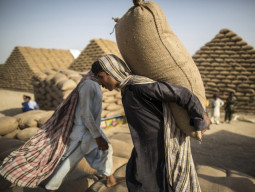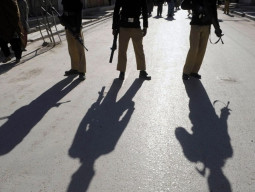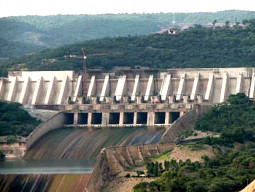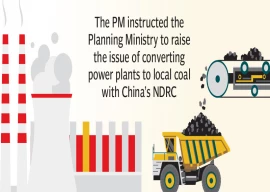
The victory speech US President Barack Obama gave to the roar of the crowd was a mix of confidence, sobriety, magnanimity, oratory and optimism.
He thanked everybody — from young campaign organisers and political aides to rival Mitt Romney.
“Our long campaign is now over and whether I earned your vote or not, I have listened to you, I [have] learned from you,” Obama said to the cheering enthusiastic supporters after handing him a thumping victory.
He also promised “reaching out and working with leaders of both parties to work together to move this country forward and fix issues”.
It was Barack Obama at his best: speaking as a reenergised president of “a nation that is defended by the strongest military on earth and the best troops this world has ever known”.
Some of the rhetoric on the strength of the American military and the riches of the nation notwithstanding, Obama’s entire speech was remarkably nation-focused.
He kept talking of the issues that interest the common American such as employment, schooling and better governmental and fiscal governance.
Conspicuous by its absence from the victory speech was the foreign policy, and more so Afghanistan and the war against terrorism – that so far has gobbled up close to a trillion dollars in over a decade or so.
This also reinforced the commonly-held perception that, primarily, domestic politics determine the US presidential electoral process, while foreign policy takes the centre stage only after the president assumes or resumes charge.
And this happens through an elaborate consultative process involving the administration as well as the security establishment ie the guardian of America’s geo-political interests.
Strangely, American image abroad, particularly in the Middle Eastern Muslim countries as well as in Pakistan and Afghanistan reels from this very reason ie foreign policies that flow from the geo-political and geo-commercial interests of the globe’s sole superpower.
It is safe to presume that Washington’s view on Pakistan or its longest ever military engagement in Afghanistan, for which it already has set the December 2014 deadline, is not likely to change.
Pakistan will continue to be sought after as the unwanted but necessary partner in the run-up to Afghanistan’s presidential elections in spring 2012 as well as for helping out in the reconciliation process ahead of the bulk withdrawal of foreign troops from the country.
Recent overtures by US’ Afghan-Pak envoy Marc Grossman and others clearly signalled greater US empathy for Pakistan’s reluctance in going after the terrorists nestled in North Waziristan under the Haqqani Network’s umbrella.
This could also translate in a little more lenience, quicker disbursement of economic infrastructure assistance and the release of the coalition support funds (CSF).
Disbursements under the October 2009 Kerry-Lugar-Berman Act have so far averaged around a billion dollars a year, unlike the promised $1.5 billion per year.
The renewed Pak-US engagement following Grossman’s visit in October as well as Obama’s re-election augur well to the extent of continuity in the process.
Yet, this represents a daunting challenge, rather than a consolation for the Pakistani military and civilian leadership.
Fortunately for Pakistan, Obama’s re-election means practically nil transition time – which would have taken months had Romney won.
However, it is time for Islamabad to cover its flank sooner than later by articulating the still vague Afghanistan strategy in a way that draws respect and acceptance from others rather than jeer and scepticism.
It’s time to act, as Obama said in his speech (“Tonight you voted for action, not politics as usual”). And herein lies a lesson for Pakistan as well. Act before it is too late.
Published in The Express Tribune, November 8th, 2012.
COMMENTS (5)
Comments are moderated and generally will be posted if they are on-topic and not abusive.
For more information, please see our Comments FAQ












































Presidents on their last term in office carry a bigger foreign policy stick than the first term -- they don't really care what others think because they don't have to worry about running for another term. America's Afghan policy has already been laid out -- you just don't want to acknowledge it. There leaving but going to leave a small, cost effective and lethal military footprint which will make life miserable for militants in both Afghanistan and Pakistan. The Taliban won't take control of Kabul and Kabul won't control large sections of the country - not all that different from what's happening now. The big difference is that money flowing into both Afghanistan and Pakistan is going to grind to a halt and what little press coverage you get now is going to disappear as well.
"Pakistan will continue to be sought after as the unwanted but necessary partner in the run-up to Afghanistan’s presidential elections in spring 2012 as well as for helping out in the reconciliation process ahead of the bulk withdrawal of foreign troops from the country"
Afghanistan's presidential elections is scheduled for April, 2014. Furthermore, Afghans don't need Pakistan's help in the reconciliation process, what Afghans need is for Pakistan to stop being an interloper and put its own house in order.
I think whether its Obama or anyone else, it does not matter because they have already planned their foreign policy and what they suppose to do with or against Pakistan...America do not change its foreign policy against Pakistan,unless we Pakistanis or our leadership should say no to America in every negative aspect. Ammad Qureshi Rawalpindi
yesterday, in the speech after winning the election Obama talked about the "GAYs" equal rights and after a few sentences he was saying God bless you , God bless America ! i dont know which God he was referring to ? non of the God , of bible, torah or quran allows same sex marriages.